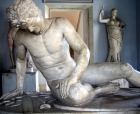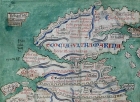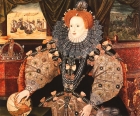Big Picture
Big Picture involves placing topics of study with a broader understanding of the past. This involves relating topics to the local, national, and world perspective together with their place in a broader understanding of the past.
Sort by:
Date (Newest first) | Title A-Z
Show:
All |
Articles |
Podcasts |
Multipage Articles
-

A Vision of Britain Through Time
ArticleClick to view -

A creative Egyptian project
ArticleClick to view -

A history of the world - 100 objects that tell a story
ArticleClick to view -

Assessment and Progression without levels
ArticleClick to view -

Bringing the Civil War to life in Somerset
ArticleClick to view -

Britain and the wider world in Tudor times
ArticleClick to view -

Britain from the Iron Age to Robin Hood
ArticleClick to view -

Britain's settlement by Anglo-Saxons and Scots
ArticleClick to view -

Britain, Europe and the World?
ArticleClick to view -

Case Study: Creative chronological thinking
ArticleClick to view -

Changes in an aspect of social history from 1945 to 2000: youth culture
ArticleClick to view -

Children's Thinking: Developmental psychology and history education
ArticleClick to view -

Children's thinking and history
ArticleClick to view -

Coherence in primary history
ArticleClick to view -

Creating a curriculum to help children in the early years understand the world in which the live: history and children in the early years
ArticleClick to view -

Creating the 'creative history' website
ArticleClick to view -

Curriculum planning: How to write a new scheme of work for history
ArticleClick to view -

Diogenes: Creativity and the Primary Curriculum
ArticleClick to view -

Doing history in the early years and foundation stage
ArticleClick to view -

Early Islamic civilisation
ArticleClick to view

